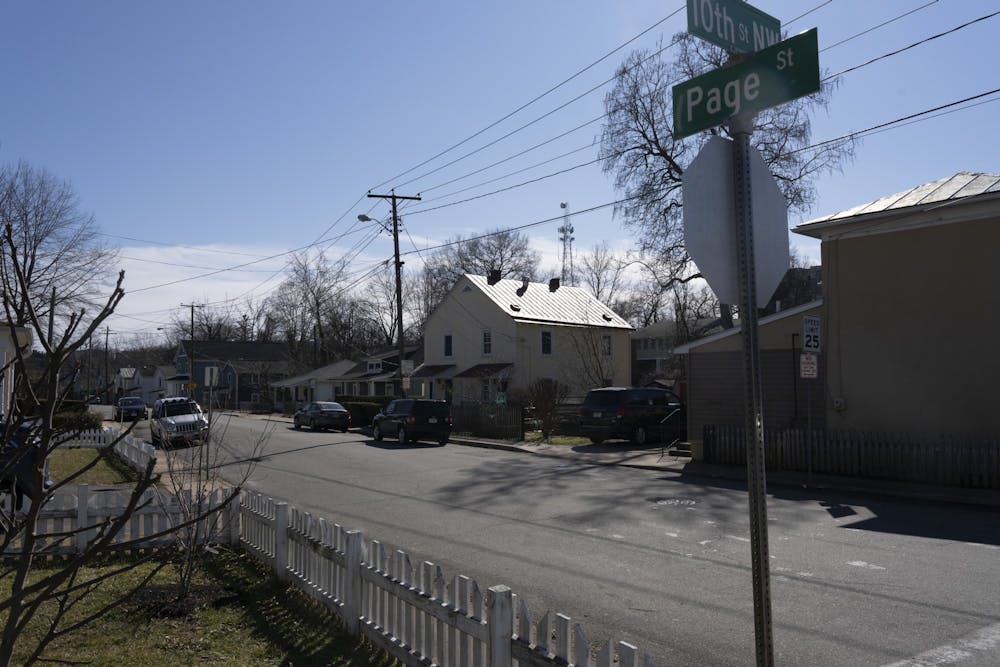A new health initiative called WellAWARE was launched with the help of U.Va. Health funding to combat healthcare inequalities in Charlottesville neighborhoods. The program is now welcoming referrals for its first patients.
The idea for WellAWARE first emerged from a group of U.Va. Health doctors who consulted with community leaders.
Betsy Peyton, director of WellAWARE, served as a community health nurse for over 20 years in many different fields — including inpatient psychiatry, school nursing and community health — before being hired to bring this idea to fruition.
WellAWARE hires a community health worker in each neighborhood to work closely with its clients, seeking to prevent them from continuing to avoid healthcare.
"Healthcare barriers cause people to miss out on essential preventive care, often ending up in the emergency room for low-acuity complaints,” Peyton said. “They may also endure worse health outcomes, like increased cardiac and diabetic emergencies."
WellAWARE’s philosophy is to approach neighborhoods in a friendly manner to ensure that the neighborhood wants its services. Workers talk to known community leaders, attend neighborhood association meetings to network, branch out and figure out what the neighborhood needs and what WellAWARE can do better for them.
WellAWARE hires community health workers that come from the same backgrounds and share life experiences with the clients.
“This makes [them] much more relatable and approachable because [they] can then connect better with them and put clients at ease,” Peyton said.
One way that WellAWARE helps clients is by taking them to grocery stores and teaching them how to read labels on cans. WellAWARE also accompanies clients to the doctor’s office so that they can advocate for the patient if the provider misunderstands something.
Another way that WellAWARE helps level the playing field is by providing clients with transportation by offering free rides to the hospital and grocery store. Workers can also ride the bus with clients so that they know where they are going and where everything is.
WellAWARE represents a collaboration between U.Va. Health, Charlottesville Free Clinic and the Central Virginia Health Services. The CFC helps to provide dental care, consulting and shared resources such as groceries and funding.
The CFC offers a range of specialty care, including dermatology, optometry, gynecology, endocrinology, psychiatry, rheumatology and orthopedics. Susan Sherman, executive director of the CFC, said that its partnership with WellAWARE is critical.
“[The partnership] allows [the organizations] to meet people where they are — both literally and figuratively — to help them understand their options for health care, help them connect to the appropriate medical home, accompany them to appointments and explain ‘medical talk’ to them,” Sherman said.
CVHS helps patients get access to medication that they can afford, to get transportation to appointments and to go with patients to their appointments if they don’t feel they are being heard or have trouble understanding all the different issues their doctor addresses.
“The most important thing we will be doing first is listening,” said Paulo Tomko, chief executive officer of CVHS. “We don’t want to assume we know what barriers they face in accessing healthcare or managing the chronic illnesses they may have that lead to a lower quality of life or a higher number of hospital visits per year.”
WellAWARE partners with other community partners such as the National Association for the Advancement of Colored People, as well as the neighborhoods themselves.
Peyton said WellAWARE hopes to reduce healthcare inequality rates by 30 percent in Charlottesville. Currently, WellAWARE is in partnership with the Rose Hill and 10th and Page neighborhoods.
“We have already had other neighborhoods ask to work with us,” Peyton said.
At the end of the day, the organization is working together with the neighborhoods in order to increase general health for the better good.
“It’s always a partnership,” Peyton said. “It’s not doing for, but doing with.”







